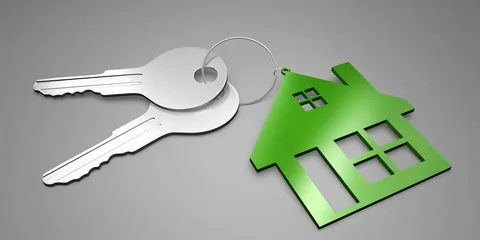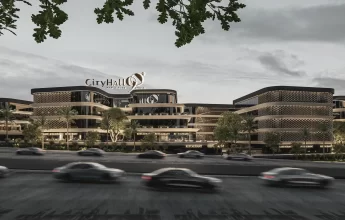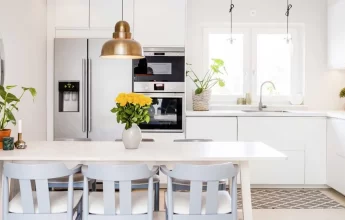The Difference Between Ownership and Renting: Understand the Pros and Cons

Ownership and renting a property differ significantly in various aspects, as the responsibilities assumed by the tenant are quite distinct from those of the owner. In addition, the rental expenses are not the same as those of the Ownership and the same thing applies to the benefits each may obtain.
In this article, we will go deeper into the differences between ownership and renting from various sides, therefore you can make an informed decision about your future property. Certainly, The more details you get, the easier it is for you to make the right decision.
What is the difference between ownership and renting?
In short, the fundamental differences between ownership and renting can be summarized as follows:
Ownership implies that the buyer has full control over the unit. This means he can legally use, live in, rent out, or sell the property. This autonomy typically comes with a higher cost.
In renting, the tenant doesn’t own the property but pays a specified amount of money every month for a predetermined time span as set in the rental contract.
What are the advantages of renting a residential or commercial unit?
The freedom to move from one place to another in a relatively short period
Flexibility to relocate within a short time frame is beneficial for individuals who easily get bored or have working conditions that require increased flexibility. Renting a residential unit is an ideal solution in such scenarios.
Moreover, some business owners who need to establish new branches for their businesses or even change the location of their premises to adapt to the marketing needs may need to kickstart with a rental unit. As they may think of spending a trial period to make sure of the viability of their project location as well as its easy access to customers, thus achieving their desired profits. This entails initially renting a unit just to save the business owners the heavy financial burden of ownership. This way, they can make their decision about ownership and renting their commercial unit.
Limited Expenses:
Renting a unit requires a monthly amount of money that goes along with your income, so you don’t have to take on excessive heavy financial obligations or have to stick to relatively high installments for middle-income earners.
No Maintenance Costs:
Commonly, the owner and tenant make a written agreement in which the tenant becomes obliged to pay an insurance payout to compensate for any breakdowns or damage that may occur to the unit. However, this security payment is returned back to the tenant if the unit is totally intact. Besides this, the tenant is generally not required to pay for any maintenance costs related to the unit or the property as a whole.
Enjoying Property Amenities:
Many high-end residential compounds offer great privileges, such as security and beautifully maintained surroundings. These features are a must-have for both residents and thriving businesses. Ownership and renting occupants can enjoy benefits like attractive facades and prime locations. The best part for renters is that they get to enjoy all these advantages without having to bear the high costs associated with buying a property.
What are the disadvantages of renting a residential or commercial unit?
Lack of Stability:
Over time, the value of residential and commercial units often increases, which can make you feel unstable. If rent prices rise beyond your current income, you may find yourself needing to move to a less desirable place. Additionally, if the property owner decides to sell the property, you will get your rental contract ended by the end of its due date. This issue is particularly devastating when renting commercial space, as changing your location can result in a dramatic decrease in customer traffic and profits.
No Profit from the Property:
What it means to rent a property is that you will have to pay a monthly fee as assigned in your rental contract just to provide a space to live in or run your business without any potential investment profits on the asset itself. On the contrary, the required fees may leave you drained out of your financial resources making it harder for you to buy your unit one day. That’s why the investment potential is a significant factor when it comes to choosing between ownership and renting.
Risk of Not Receiving the Security Deposit Back:
In the case the property owner finds out any damage or a breakdown in the unit’s external or internal parts during your tenancy at the unit, they have the right to keep the security deposit. Sometimes, they may request additional compensation if the losses are more than the compensation payment.
No Right to Renovate or Modify the Unit:
Renting contracts impose many restrictions on the tenant regarding making any kind of modification. The restrictions typically include preventing knocking out a wall, building an additional room, or even changing the wall colors or finishes. The list goes on for many other prohibitions that may extend to not allowing satellite dish or surveillance camera installations in the rented unit without the owner’s permission.
What are the Advantages of buying a residential or commercial property?

A Guaranteed Investment for Your Money:
Buying a property is considered one of the safest Savings containers, leading to a growing increase in your financial assets. This is because when you sell your unit, you will get all your money back plus the unit earn profits as the property value appreciates over time.
Rental Potential:
The benefits of owning property greatly surpass its appreciation. If you have a property that you’re not currently using for any reason, you can generate rental income from it. Rental rates may fluctuate based on the property’s location and features. As such, the property offers a dual investment benefit and additional passive income.
Stability:
Achieving a stable lifestyle is a major thing that leads many people to end the confusion between ownership and renting for buying a property since the short stays in different places don’t fit with most individuals and families who always seek to live close to their workplace and schools. Another reason why many people prefer settling in one place is that they may be able to establish strong social bonds with their neighbors and other surroundings. Contrarily, when you rent a property, you are prone to move suddenly or when your contract is terminated.
Freedom to Design and Renovate the Home:
When you have your property, you are the only one having the privilege to decide each detail of it; be it a tiny repair or even a complete renovation encompassing the unit design, and internal and external finishes. Besides, purchasing property allows for the possibility of making improvements to the unit over time, which can also increase its investment value.
Freedom of Property Usage:
Once you purchase a unit, you are completely independent on how to use it. It doesn’t matter if you rent it out, use it as a workplace, or even turn it into a commercial premise. Such autonomy is not given to a tenant.
Ability to Secure a Loan Using the Property as Collateral:
If you need funding for a personal project, such as starting a business, making home improvements, or covering emergency expenses, you can use your property as collateral to secure a loan. Banks and financial institutions are often more willing to provide loans when strong collateral, such as real estate, is involved.
What are the disadvantages of buying a residential or commercial property?
High expenses:
Buying a property represents a financial burden on many individuals and families. This is true whether you pay the hefty upfront costs that range from 5% to 30%, or through adhering to heavy installments for a relatively long time frame extending to 10 years. Add to this the maintenance cost for both the unit and the property as a whole as well as the finishes and making the unit ready for living.
Difficulty in Relocation:
Another major drawback of owning a property is that you don’t enjoy the flexibility to change your neighborhood making the moving process becomes more complicated than before, since you have to search for a selling deal first which may take long months before you close the sale.
Property Taxes:
Paying property taxes is a consideration many ownership seekers think about. These taxes are required from the landlords of all unit types. Also, they are calculated based on the unit value in the market.
General advice before you make a decision on ownership and renting a property
First of all, when we assess the ownership and renting decision, there is no superiority of one option over other. The perfect decision is the one tailored to your conditions such as your financial situation, future plans, and peace of mind. Here you can find some criteria to look through while making your decision between ownership and renting:
First: Assessing Your Financial Situation:
If you have enough savings to cover the costs of owning a unit, such as the down payment, and then committing to a certain amount for installment payments every few months, then ownership may be a suitable option for you. However, if you have other savings priorities, and you are still torn between ownership and renting, then renting might be a better choice.
Second: Your Lifestyle and Residency Needs:
If you enjoy stability and want to live close to your workplace, establishing a steady lifestyle, ownership is the ideal option. However, if your job requires frequent relocation or changing workplaces, or if you simply do not like living in one place for too long, then renting is a better choice. Additionally, many business owners prefer to rent units for their projects rather than buy them until they can ensure that the area meets their business needs and is easily accessible to their target customers.
Third: Analyzing the Local Real Estate Market:
An important factor in deciding between ownership and renting is studying the area where you are considering purchasing a unit. The more secure and livable the area, the better your chances of making a good investment. In contrast, areas with unstable property prices or lacking in amenities may be more suitable for renting. Moreover, if property prices are excessively high, renting may be a more economical option in such cases.
Fourth: Future Plans
If you are planning to get married soon and establish a new family or if you already have one, then you probably need a larger and more stable space, making the ownership option outweigh the renting concerns. On the other hand, if you have a free of family responsibilities life, renting may be more suitable for you.
To wrap it all up, deciding between ownership and renting depends on your circumstances, for the ownership and renting decision needs a well-thought-out evaluation of many factors including your lifestyle and financial and family situation. Thus, you need to stop for a while, deeply assess your conditions, and you may need a real estate consultation through this confusing journey to make the most satisfactory decision.








Leave feedback about this